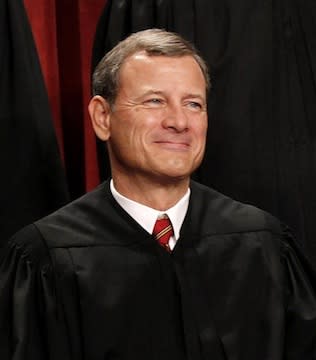 The Ticket
The TicketDid Justice Roberts change his Obamacare vote at the last minute?

Did Chief Justice John Roberts decide to join the court's liberal wing and uphold the individual mandate at the very last minute?
That's the theory floated by Paul Campos, a law professor at the University of Boulder, and Brad DeLong, a Berkeley economics professor and former Treasury Department official under President Bill Clinton. Campos wrote Thursday in Salon that the dissent had a triumphant tone, as if it were written as a majority opinion, and that the four conservative justices incorrectly refer to Justice Ruth Bader Ginsburg's concurring opinion as a "dissent."
"No less than 15 times in the space of the next few pages, the dissent refers to Ruth Bader Ginsburg's concurring opinion as 'Justice Ginsburg's dissent,'" Campos wrote.
DeLong pointed out on his popular blog that in Justice Clarence Thomas' two-page note on the dissent, he refers to the conservatives' dissent as the "joint opinion" instead of the "joint dissent."
Campos hypothesized that the conservative justices may have intentionally left these typos as a way of signaling to the outside world that Roberts abandoned them at the last moment.
Lyle Denniston, the longtime courtwatcher who writes for SCOTUSblog, tells Yahoo News that he "can't account for the wording of the Thomas opinion."
But Denniston disagrees with Campos that it's incorrect for the dissenters to refer to Ginsburg's opinion as a dissent. Ginsburg wrote that she thought the individual mandate should have been upheld under the Commerce Clause, and she was in the minority in that respect.
Kennedy and the four conservative justices, including Roberts, said the mandate would be illegal under the Commerce Clause. Roberts upheld it as a tax, instead, with the four liberal justices partially concurring.
"My own sense, from reading the Roberts opinion, is that it was written as a majority opinion in all of its drafts, and that various justices joined or dropped off," Denniston told Yahoo News. "I think he was determined to try to uphold some key parts of the law, if he could find a way, partly because ... he has grown concerned about the public perception that his court is a partisan-driven court."
